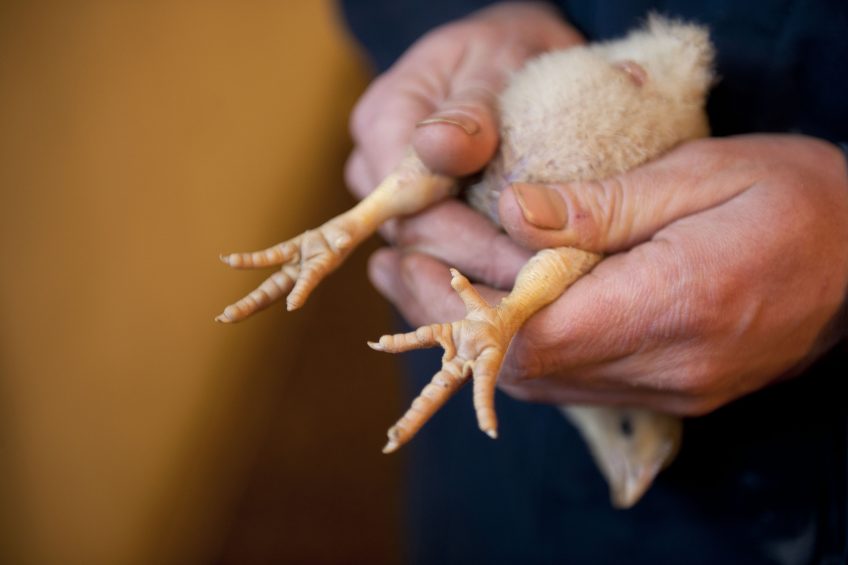Novel strategies to combat production diseases in poultry

Intensification of farming increases the risk and susceptibility of poultry getting production diseases, making animal husbandry practices less efficient and resulting in financial losses.
Such diseases are estimated to lower the efficiency of poultry systems by 10-15% and the evolution of production diseases is challenging existing options to prevent and control them.
Professor Ilias Kyriazakis, coordinator for the EU-funded 5 year PROHEALTH (Sustainable intensive pig and poultry production) project, believes there is a need for new tools and innovative solutions.
Control strategies
The PROHEALTH project is trying to develop effective control strategies to reduce the negative impact on the conditions on animal health and welfare. Now in its 5th and final year, the project has made a range of key findings, including determining the biosecurity score and risk factors for production diseases in pig, broiler and layer chicken and turkey farms across the EU.
Project partners have identified the genetic and environmental factors involved in neonatal survival that exert long-term developmental influences on the health of pigs and poultry.
They have identified the most common production diseases in broiler breeder production and found that Escherichia coli infections were the most common form of mortality. The foot pad was shown to be a possible port of entry for Gram positive bacteria, resulting in increased mortality and poor health.
By using innovative environmental monitoring sensors, researchers quantified the farm environment’s contribution to the expression of respiratory diseases in pigs, developing novel genetic biomarker panels that could potentially diagnose production diseases in pigs and poultry.
Results of survey
The project, which is based at the University of Newcastle, UK and involves 22 partners, has also recently published results of a European public survey looking at intensive animal production systems and production diseases.
They conducted a survey across 5 European countries (Finland, Germany, Poland, Spain and the UK) and found:
- The public have little knowledge of modern farming practices with most respondents either unsure or disagreeing they had purchased foods from intensive animal production systems
- Most concerns raised were over whether welfare standards were being achieved in intensive systems, antibiotic use leading to antibiotic resistance, antibiotic residues and food safety and in particular prophylactic antibiotic use, even though that is banned within the EU.
- The most preferred interventions to improve welfare involved changes to housing design, enhanced hygiene, reducing stocking densities and providing enrichment materials rather than use of medicines, vaccination, genetic selection and food supplements. Doing nothing was constantly at the bottom of the list.
PROHEALTH is currently putting together the results of its 5 year work and drawing up recommendations on the most viable ways to control production diseases that add value, are societally acceptable and have a true impact on animal health.
“The outcomes will help stakeholders make informed choices on how to best control production diseases,” said Prof Kyriazakis.
“Ultimately, PROHEALTH will enable production of better quality products in a welfare-friendly manner, while improving the competitiveness and sustainability of modern pig and poultry farming in Europe,” he added.













